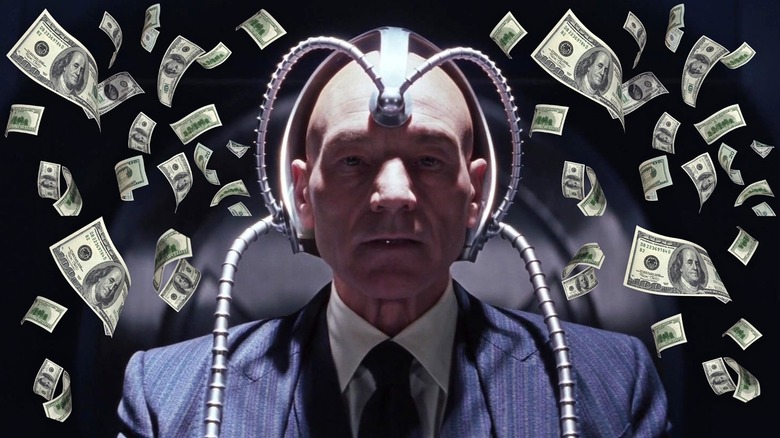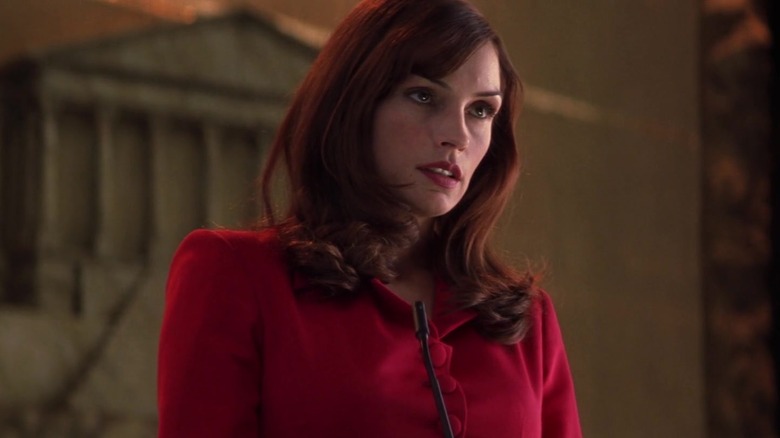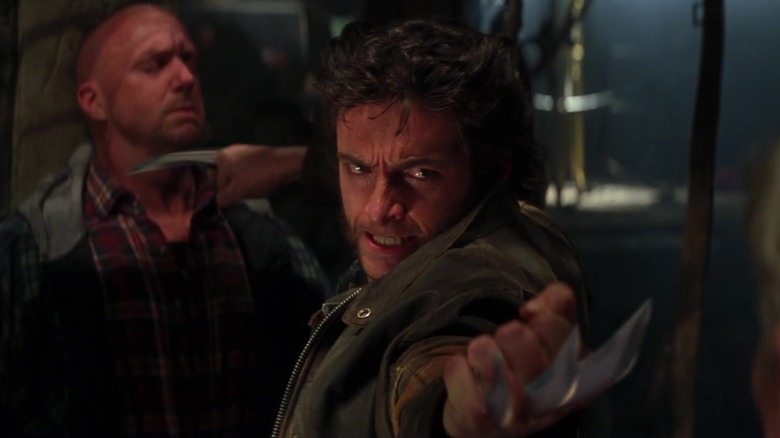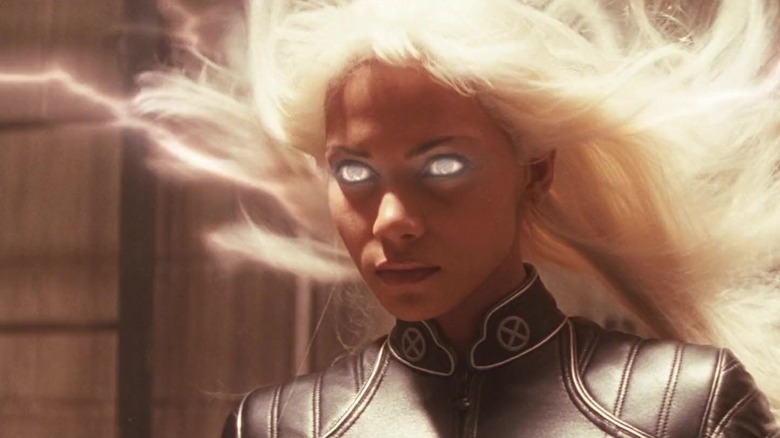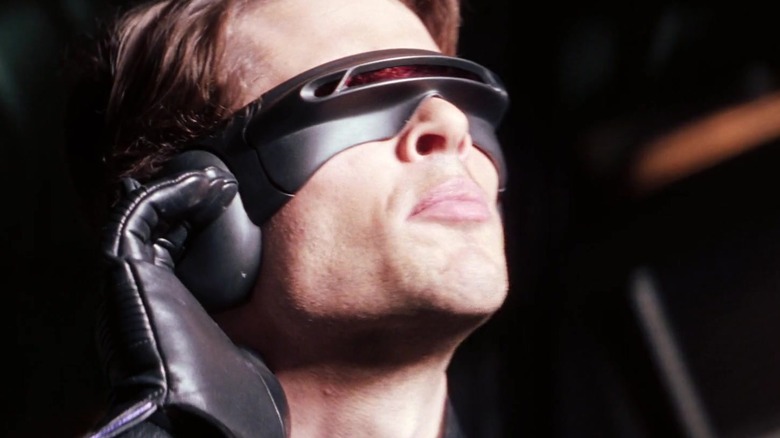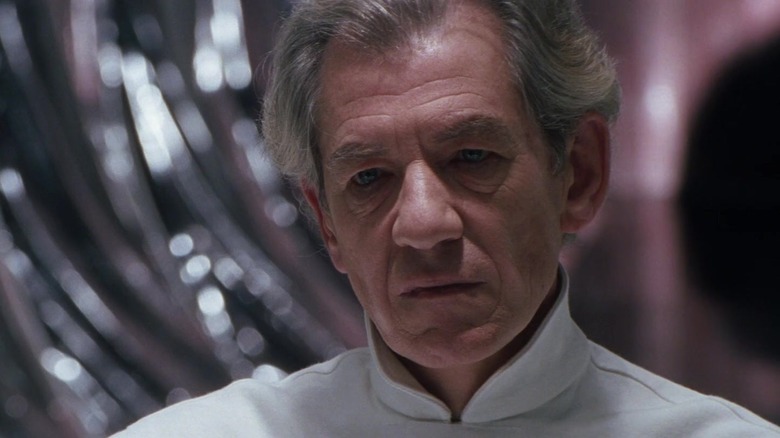25 Years Ago, Marvel Released Its Most Important Box Office Hit Ever
(Welcome to Tales from the Box Office, our column that examines box office miracles, disasters, and everything in between, as well as what we can learn from them.)
"Does it hurt?" Anna Paquin's Rogue asks Hugh Jackman's Wolverine in 2000's "X-Men" as they sit in his pickup truck trekking across the snowy Canadian wilderness, referencing the claws she previously saw emerge from his hands. After a dramatic pause, Wolverine replies coldly with, "Every time."
It is easy to take a moment such as this for granted in the year 2025 after more than two decades of superhero dominance at the box office. That said, the line still packs a punch, and it perfectly distills why this movie was able to catch a wave and deliver Marvel its first honest to goodness, mainstream movie hit. In short? It treated these characters seriously.
Granted, 1998's "Blade" was also a decent hit for an R-rated vampire flick and, in turn, made this movie possible. All the same, superhero cinema as we know it is probably best measured by what came before "X-Men" and what came after. When we talk about watershed moments in the history of popular cinema, this is one for the ages. It was itself a big hit, but billions upon billions of box office dollars were made on its back.
In this weeks' Tales from the Box Office, we're looking back at "X-Men" in honor of its 25th anniversary. We'll go over how it came to be, how Marvel had struggled to find mainstream success prior to this moment, how it differentiated itself from other superhero movies, what happened when it hit theaters, what happened in the aftermath of its release, and what lessons we can learn from it all these years later. Let's dig in, shall we?
The movie: X-Men
The film takes place in a near future where mutants have emerged as the next link in the chain of evolution. Charles Xavier (Patrick Stewart), a powerful telepath, teaches some of these gifted youngsters at his school, a haven for these societal outcasts. But when a former colleague known as Magneto (Ian McKellen) wages war against them, threatening humankind, Xavier must assemble a team to stop him.
Development on an "X-Men" movie pre-dated even Marvel's earliest cinematic efforts, going back to the mid-1980s and Orion Pictures, right around the time it struck gold with James Cameron's "The Terminator." The project spent a long time in development hell, in no small part because comic book movies were far from a sure bet at the time. Hollywood, on the whole, didn't view comic books as a ticket to the train to box office glory.
Movies like Richard Donner's "Superman: The Movie" had been successful for DC, with Tim Burton's "Batman" becoming a massive breakout hit in 1989. "Teenage Mutant Ninja Turtles" was also a monster indie hit in 1990. But these success stories were few and far between. Rather crucially, Marvel's name wasn't attached to any of them up to this point. So, why would a studio rush to spend a lot of money on an unproven property? Moreover, the films Marvel had made, such as the oft-forgotten direct-to-video 1990 "Captain America" starring Matt Salinger, did not inspire confidence.
X-Men finally gets off the ground
One area where Marvel had experienced success previously was in the realm of television. "The Incredible Hulk" was a sizable hit in the 1970s and '80s. Then, in the '90s, Marvel found even more success with animated fare. This, in turn, paved the way for the long-in-development live-action take on the "X-Men" to become a reality.
Producer Lauren Shuler Donner secured the rights for an "X-Men" feature film for Fox after "X-Men: The Animated Series" became a surprise success for Fox Kids. Still, the project languished in development for several more years, with various creatives coming and going. Then, the legendary "X-Men" comic book writer Chris Claremont writer stepped in. Speaking with The Hollywood Reporter in 2019, Claremont explained how he helped get the movie a green light:
"Fox couldn't find a way to bring the concept to life that made cinematic sense. So, I wrote up a memo, four pages long ... Within three days, we had a green light. Whatever I said had a resonance and Lauren and company moved on full-bore."
And so it was. After a great many directors, including Kathryn Bigelow, flirted with the project over the years, it was Bryan Singer, coming off of the success of "The Usual Suspects," who ended up landing the gig and getting the film over the finish line. It should also be noted that Singer has since been accused of sexual assault and misconduct multiple times, in addition to facing accusations of inappropriate on-set behavior. So, we are by no means here to celebrate him, but we can't talk about this movie without talking about Singer.
X-Men took Marvel's mutants very seriously
In a 2020 piece by The Hollywood Reporter detailing the chaotic "X-Men" set, it was explained that David Hayter, the sole credited screenwriter, was then serving as Singer's assistant. Meanwhile, Ed Solomon ("Men in Black") and Christopher McQuarrie ("The Usual Suspects") had done significant work on the script. Per Hayter, here's how it went down:
"Ralph Winter knew and he asked me to highlight everything I'd done in the script at that point, and it was about 55 percent of the script. Ralph went to Peter Rice and said, 'Look, here's the deal. David, the phone guy, has been writing the script. You have to make a deal with him or we are in serious legal jeopardy.' Peter called me into his office and offered me $35,000 and said, 'That's all you'll ever get. Be happy with that.'"
Hayter was largely brought on board because he had strong knowledge of the source material. That is evident in the final film. Though it may not embrace the colorful costumes of the "X-Men" comic books and animated series, the movie does feel true to the comics' themes of oppression and society fearing change.
When it came to casting, though, that's where this movie really stood out. From recruiting Shakespearean actors like Stewart and McKellen as Xavier and Magneto to bringing in future Oscar-winner Halle Berry as Storm, the film hired reputable actors who treated the material seriously. Of course, the most notable bit of casting would have to be Hugh Jackman as Wolverine, with the actor replacing Dougray Scott at the last second. The role would go on to define Jackman's career for more than two decades.
The financial journey
Despite the uncertainty, Fox committed meaningful resources to "X-Men," giving the movie a $75 million budget (or roughly $140 million in today's dollars). The studio had a lot of faith in it, giving the film a massive marketing rollout and a prime, mid-summer release date. It was just a matter of selling this comparatively gritty, serious take on Marvel's mutants to the masses. Turns out, Fox sold the movie quite well.
"X-Men" hit theaters on the weekend of July 14, 2000, on over 3,000 screens, which was one of the widest releases ever up to that point. The coast was clear for it to win the day, with no direct competition from any major new releases. It only had to contend with holdovers like "Scary Movie" and "The Perfect Storm." The film then proceeded to easily top the charts on its opening weekend, pulling in $54.4 million at the domestic box office.
That was such a surprise to Fox and the business at large that it hardly mattered that the film had to surrender its crown to "What Lies Beneath" the following weekend. It continued to hang around the domestic box office's top 10 through mid-August and, more importantly, demonstrated strong appeal overseas.
By the end of its run, "X-Men" had earned $157.3 million domestically to go with $139.5 million internationally for a grand total of $296.8 million worldwide. While that may seem like a small number by modern standards, that would be roughly $553 million in today's dollars. Those are numbers any studio would kill for any day of the week.
X-Men broke open the door for the superhero movie boom
More important than that singular hit is what came after. Naturally, Fox quickly got the ball rolling on a sequel, which arrived in the form of 2003's "X2: X-Men United," itself an even bigger hit that took in $407 million globally. That, in turn, paved the way for a string of sequels, spin-offs, reboots, crossovers, and just about everything in between.
The "X-Men" timeline got incredibly wonky over the years and not all of the films were winners, but Fox nevertheless wound up with a massive franchise — one that has generated more than $7 billion to date, counting 2024's "Deadpool & Wolverine." This also gave other studios the confidence to pursue big-budget Marvel Comics adaptations, with Sam Raimi's "Spider-Man" becoming the first movie to ever make $100 million on a single weekend in 2002 (en route to grossing well over $700 million worldwide and generating a multi-billion-dollar property for Sony).
Not every superhero movie that arrived in the wake of "X-Men" was a success, obviously, with the likes of "Elektra" and "Catwoman" serving as examples of major misfires. But there is no question that a straight-up superhero movie boom came to pass in the ensuing years, eventually leading to the inception of the Marvel Cinematic Universe in 2008 with "Iron Man" and stone cold classics like Christopher Nolan's "The Dark Knight."
It's not a stretch to say every single one of those movies owes something to "X-Men," either. That's not to say superheroes wouldn't have eventually broken through on the big screen, but, in the timeline we all currently exist upon, this film proved that Marvel could work like gangbusters on the world's biggest stage.
The lessons contained within
As I write these words, the Marvel Cinematic Universe is in the midst of a slump. The franchise seemed bulletproof for a long, long time, as its movies seemingly coasted to $1 billion global with regularity. That is no longer the case, however, with the likes of "Captain America: Brave New World," "Thunderbolts*," "The Marvels," "Eternals," and "Ant-Man and the Wasp: Quantumania" having all disappointed greatly.
Meanwhile, Marvel Studios is now getting ready to launch an "X-Men" film reboot with "Thunderbolts*" director Jake Schreier at the helm. When the first movies about mutants were being made, yes, there was pressure because of the investment, but there was no universe to protect. It was just about making a good film. Then it became about making another good movie. For better or worse, it was also often about leaning into a real vision that was true to the characters.
It's easy to forget now, but "X-Men" opens with a scene at a WWII-era concentration camp for Christ's sake. That still feels bold 25 years later. Many of the movie's casting decisions also feel perfect looking back from the present. Attempting to capture the same lightning in a bottle is and always has been a fool's errand. But what Marvel Studios — and other assorted purveyors of franchise cinema in Hollywood — would do well to remember is that "X-Men" succeeded by having a vision and leaning into its source material.
It won't always work, but meaningful, game-changing success can't happen when one plays it too safe.
